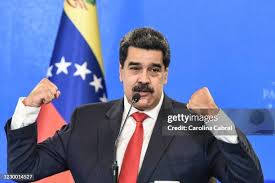
The Importance of Understanding Maduro’s Venezuela
Venezuela has been a focal point for discussions on governance, human rights, and international relations, especially under the leadership of Nicolás Maduro. As a country rich in oil reserves, the challenges it faces resonate beyond its borders, impacting global markets and humanitarian efforts.
Economic Crisis & Humanitarian Challenges
Venezuela is currently grappling with one of the most severe economic crises in its history, characterized by hyperinflation, significant currency devaluation, and a rising poverty rate exceeding 90%. According to the International Monetary Fund (IMF), inflation was projected to rise more than 2,000% in 2023, plunging millions of citizens into abject poverty.
The crisis has not only crippled the financial stability of the nation but has also led to widespread scarcity of basic necessities such as food and medicine. The United Nations reported that approximately 7 million Venezuelans are in need of humanitarian assistance, and nearly 6 million have fled the country since 2015 due to the ongoing struggle for survival.
Political Landscape and Governance
Nicolás Maduro, who has been in power since 2013, has faced significant criticism for alleged authoritarian practices. His government has been accused of suppressing dissent and political opposition. The 2023 elections, which were heavily criticized by international observers for a lack of fairness and transparency, further exacerbated tensions within Venezuela. The United States and several Latin American countries have continued to refuse to recognize the legitimacy of Maduro’s presidency, calling for a peaceful transition to democracy.
International Response and Future Outlook
Amidst the worsening conditions, international responses have been mixed. While the U.S. has imposed sanctions aimed at the Maduro regime, other nations have taken a more neutral stance, emphasizing dialogue and diplomacy over punitive measures. As Venezuela approaches a critical juncture in 2024 with key international negotiations, the need for a sustainable solution is pressing.
Conclusion: What Lies Ahead for Venezuela?
For residents of Venezuela, the path forward remains uncertain as they navigate the harsh realities of daily life under Maduro’s regime. The significance of international attention cannot be understated, as global cooperation will be essential in addressing the humanitarian crisis and catalyzing political change. At this juncture, the outlook for Venezuela is contingent not only on internal reforms but also on external diplomatic efforts aimed at fostering stability and recovery.



